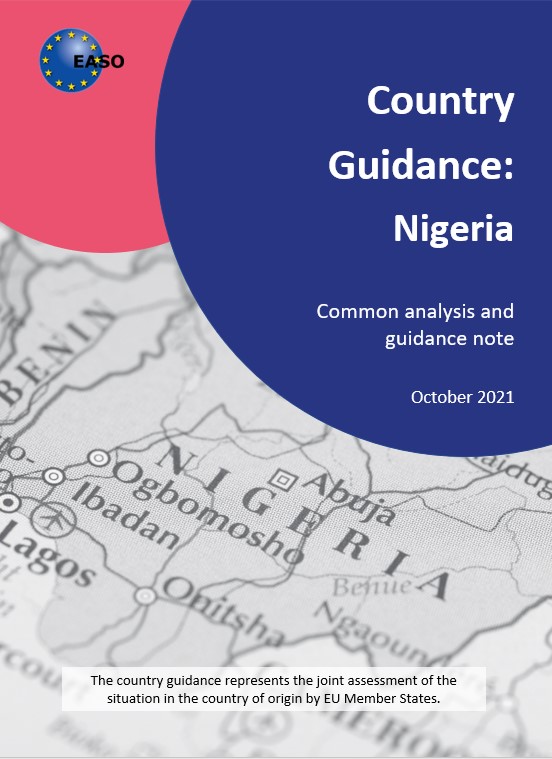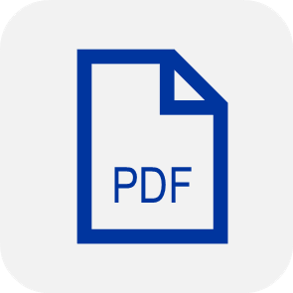
Publication date: 19 October 2021
The 'Country Guidance: Nigeria' represents Member States' joint assessment of the situation in the country of origin in relation to the applicable international and EU legislation on international protection. The guidance note, accompanied by the common analysis, was developed by EASO together with Member States. It was agreed by the EASO Country Guidance Network of senior policy officials in September 2021 and was endorsed by the EASO Management Board in October 2021.
In addition to this electronic publication, the 'Country Guidance: Nigeria' (October 2021) is available in pdf format.
 |
 |
|
Continue reading
online
|
Download complete
pdf
|
The 'Country Guidance: Nigeria' applies the common legislative framework regarding qualification for international protection in an in-depth analysis of the situation in the country. The analysis and conclusions in this document are based on the most up-to-date EASO country of origin information reports, which were available at the time of its completion.
The 'Country Guidance: Nigeria' aims to provide assistance to decision-makers and policy-makers in the EU and beyond, by addressing the following topics:
- actors of persecution and serious harm (Article 6 of the Qualification Directive);
- refugee status and analysis of the protection needs of specific profiles of applicants encountered in practice (Article 9 and 10 of the Qualification Directive);
- subsidiary protection, including the risk of death penalty or execution (Article 15(a) of the Qualification Directive); torture, inhuman or degrading treatment or punishment (Article 15(b) of the Qualification Directive); and serious and individual threat to a civilian’s life or person by reason of indiscriminate violence in situations of international or internal armed conflict (Article 15(c) of the Qualification Directive);
- actors of protection (Article 7 of the Qualification Directive);
- internal protection alternative (Article 8 of the Qualification Directive); and
- exclusion (Article 12 and Article 17 of the Qualification Directive).
| Learn more about the 'Country Guidance: Nigeria', its basis and scope, and the methodology for its development, in the section Introduction. |
ISBN 978-92-9465-539-4
DOI 10.2847/956357
Catalogue number BZ-08-21-311-EN-Q

